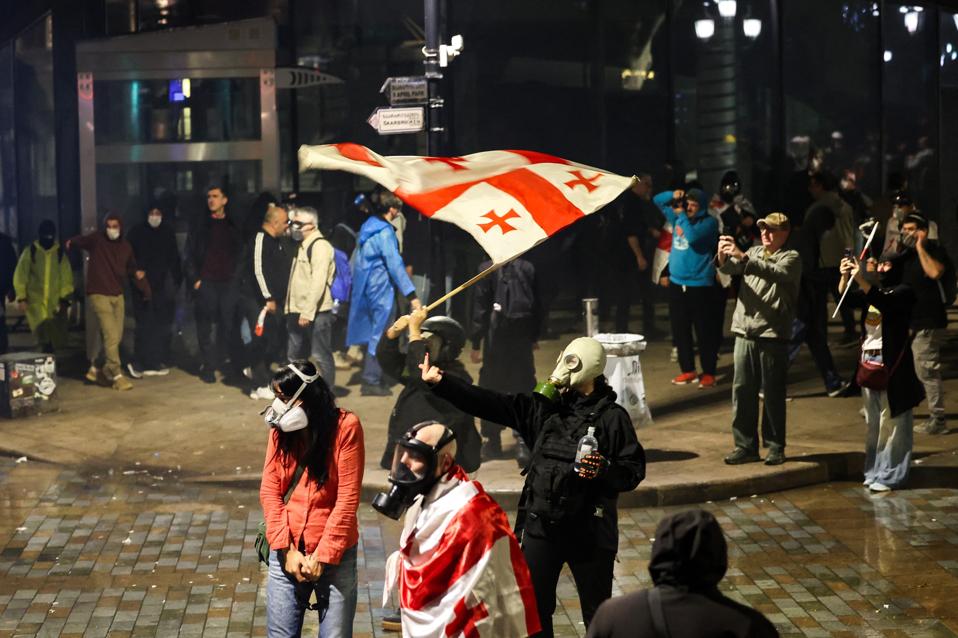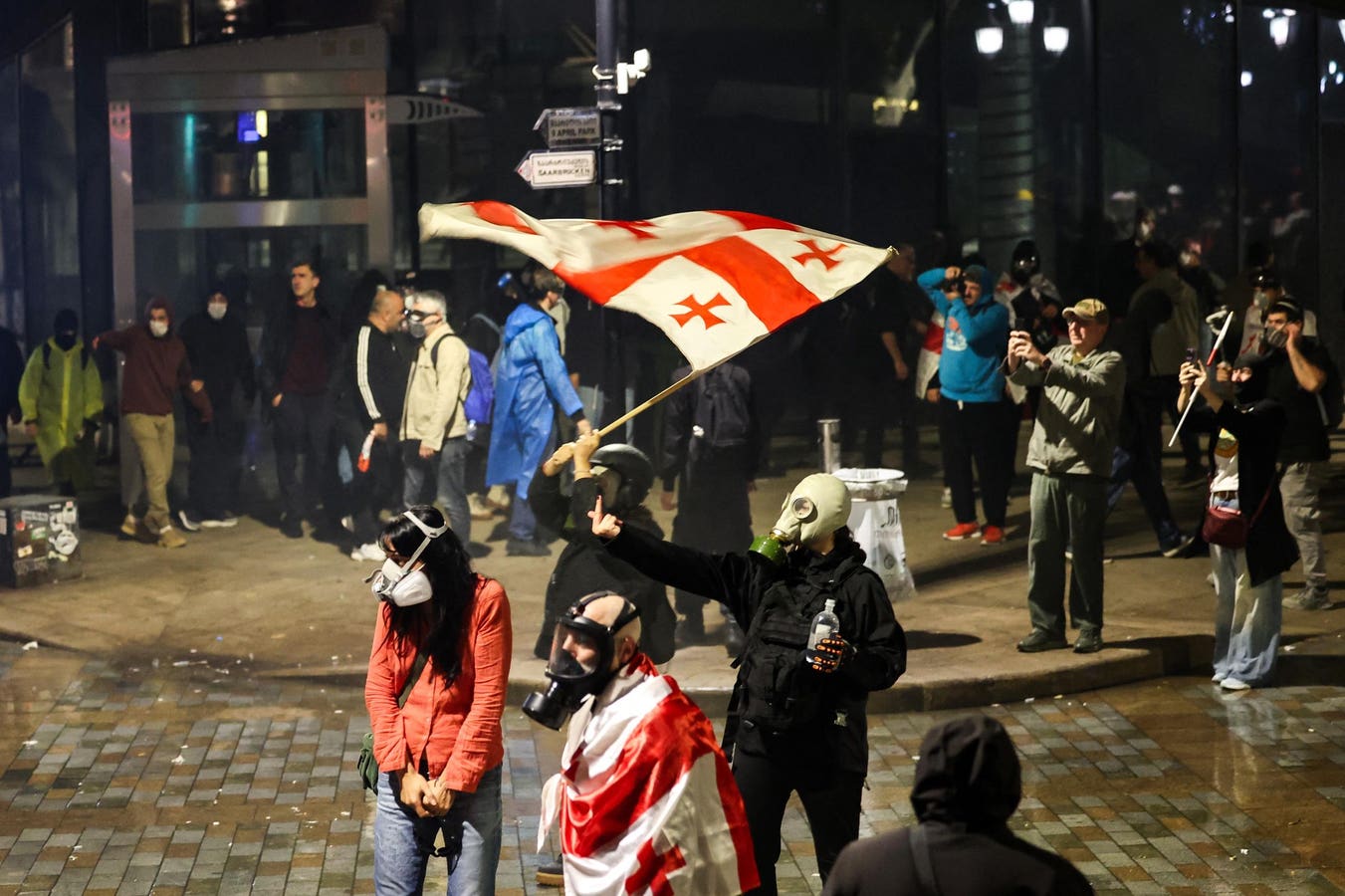
Protesters face riot police during an opposition rally on the day of local elections in central Tbilisi on October 4, 2025. (Photo by GIORGI ARJEVANIDZE/AFP via Getty Images)
AFP via Getty Images
The European Union has issued an angry response to what it calls “Russian-style conspiracy theories and divisive narratives” put out by the Georgian authorities.
It’s decrying recent statements claiming that it wants to destabilize Georgia, drag it into war or impose so-called “non-traditional values”.
Over the weekend, tens of thousands of anti-government protesters took to the streets of the Georgian capital, Tbilisi, claiming the Georgian Dream party’s government was illegitimate.
And, yesterday, amongst other claims, Georgian prime minister Irakli Kobakhidze accused the EU of meddling in the country’s politics, saying it had specifically called for an uprising.
He singled out EU ambassador Pawel Herczynski for particular criticism.
The EU, though, is fighting back against this narrative.
“We strongly denounce the personal attacks against the ambassador of the European Union to Georgia. The ambassador plays a vital role in fostering relations between the EU and Georgia. He enjoys the full trust and support of the EU,” said EU high representative and vice president Kaja Kallas and commissioner for enlargement on Georgia Marta Kos.
“We urge all political actors in Georgia to refrain from spreading disinformation, avoid inflammatory personal attacks, and work towards the European future for its population.”
Georgian president Shalva Papuashvili has, in turn, accused the EU of spreading disinformation itself.
“If I understand correctly, Ms. Kallas and Ms. Kos are not apologising for supporting a rally aimed at overthrowing the government, yet this is exactly what Georgian society expects from the European Union today, he posted on Facebook.
“Regarding their evaluation of Georgian elections. I, again, call on all EU representatives to refrain from spreading false narratives, which strengthens the desire of the radical forces to undermine democracy, the rule of law and respect for human rights.”
The EU has a big problem when it comes to political and election misinformation. Last year, for example, elections in Romania were declared invalid because of foreign interference and disinformation spread through social media sites.
And just last week, international monitors said that while Moldova’s recent parliamentary elections were sound, the process was marred by serious cases of foreign interference, illegal funding, cyberattacks and widespread disinformation.
“In the run-up to the elections, networks of accounts sometimes using AI generated videos, troll farms and automated bots spread manipulative narratives on social networks,” said Linnéa Wickman, head of the Organization for Security and Co-operation in Europe PA delegation.
“While the authorities increased their efforts to counter this disinformation, its prevalence had a negative effect on the election campaign. The response of the platforms themselves to notifications they received from state authorities and civil society organizations was considered inadequate.”
In the Czech Republic, meanwhile, which held an election last week, an investigation by local publication Voxpot found that tens of thousands of messages from sanctioned Russian websites were flowing into the country via social media.
Russia is suspected to be the source of misinformation in Georgia too.
“Undermining EU-Georgia relations through Russian-style conspiracy theories and divisive narratives only serves those who oppose Georgia’s democratic and European path,” said Kallas and Kos.
“The EU reaffirms its unwavering support for the territorial integrity of Georgia and reiterates its steadfast solidarity with the Georgian people and its readiness to continue supporting Georgians on their path towards a European future.”
